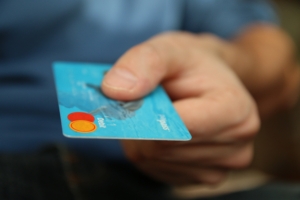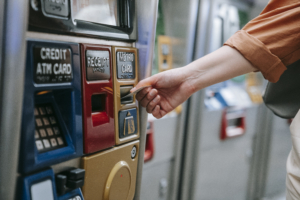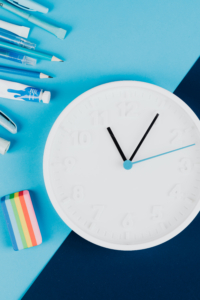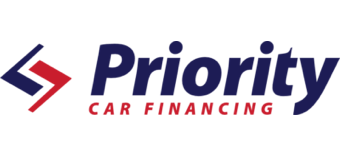How do credit cards work?
Credit Cards are considered Revolving Credit. It is very important to understand that Credit Cards have a huge impact in your Credit Report and paying them on time has a great impact on you.
Credit Cards could be very widely used in everyday life and they could be used to pay for all kinds of goods and services.
You can use your credit card to pay for goods or services:
- at a cash register or checkout, that is, a point of sale
- over the phone
- online
Keep receipts for all your credit card purchases. Check your receipts against your credit card statement to make sure there are no mistakes. If you find a mistake, immediately contact the financial institution that issued your credit card. Most importantly contact the Credit Reporting agencies in order to place a warning to stop any possible fraud in further credit granting.
Click Here if You Want to Build Your Credit – Get Your Dream Car Today!

Cash Advances
A very common way of using Credit Cards is through forms of Cash Advance. You can use a credit card to get a cash advance by:
- taking out cash at an automatic teller machine (ATM)
- getting cash from a financial institution
A cash advance can be a very expensive way to borrow money. Before you take out a cash advance, consider a cheaper way you can borrow, such as a personal loan or line of credit. When you use cash advances, try to pay off as much of your balance as you can as early as possible.
There is no interest-free grace period with cash advances. You’ll pay interest from the date you get a cash advance until you pay it back in full. The interest rate charged for cash advances is usually higher than for regular purchases. For example, the interest rate for regular purchases may be 18%, but it may be 28% for cash advances.
You may also have to pay a fee each time you get a cash advance.
A fee may be:
- a fixed amount per cash advance
- a percentage of the amount of the cash advance
- a fixed amount plus a percentage of the cash advance
Some financial institutions set a minimum and a maximum for those fees. If you apply for a credit card from a federally regulated financial institution such as a bank, the application must include an information box. The information box must present key features of the credit card, such as interest rates, fees and other charges, in a clear and easy-to-understand way.

Photo by on Pexels
Credit Cheques
Sometimes it might come as a surprise to you when you see cheques in your mail attached to your credit cards bill. You can use credit card cheques to make purchases the same way you would with personal cheques. Credit card cheques are also called convenience cheques or promotional cheques. You can also use them to pay bills or other debts such as outstanding balances on other credit cards (though this can end up being a problematic infinite loop).
You’ll pay interest from the date you use the cheque. The interest rate charged when you use a credit card cheque is usually higher than for regular purchases. Credit card cheques are linked to your credit card account. If you use them to pay for goods or services, the amount will appear on your credit card statement. Federally regulated financial institutions, such as banks, must get your consent before they can send you credit card cheques. If you choose to get credit card cheques as part of a special offer, make sure you understand all the terms and conditions. If you don’t want to use credit card cheques, cut them up before you throw them out to protect yourself against fraud. Contact your credit card issuer and ask them to stop sending credit card cheques.
Balance Transfer
It is quite common for credit card companies (Visa, Mastercard…) to offer you lower than market rates. This is done for the purpose of achieving a Balance Transfer. This occurs when you pay off the balance from your current credit card by transferring it to a new card that generally has a lower rate. Be careful as these rates are temporarily low and they increase at a later time. In some cases they charge a fee for the transfer which could be in the form of a percentage of the amount transferred. Before you transfer a balance, be sure to read the terms of your credit card agreement carefully.

Photo by on Pexels
Key Elements
Here are some very important elements to know while using Credit Cards:
High Credit (Credit limit)
Your credit limit is the maximum amount you can normally spend on your credit card. The limit is set when you first get your credit card, but you can request that it be reduced or increased.
Your credit card issuer has to get your permission in writing or verbally before increasing your credit limit. This is known as giving your express consent, which means you clearly agree in writing or verbally to a credit limit increase. If you agree verbally to an increase, your credit card issuer has to confirm the change in writing no later than your next credit card statement.
Credit Card Balance
The Credit Card Balance would reflect the amount of money you have already used while purchasing goods or services. You need to understand that high balances and non payments of these balances might result in high interest payments.
Available Credit
The available credit reflects the amount of credit still available to be used. It is normally the difference between the High Credit and the Credit Card balance. Keep in mind that Credit Card Companies might allow you to use more than the High Credit.
Due Date and Minimum Payment
The due date is a very important element in the invoice (bill) that you receive from the Credit Card Company. It reflects the time by which you must pay either the total balance left in your Credit Card or the Minimum Payment. Minimum Payment is the amount required to pay in order for the account not to be considered delinquent. It normally is the interest that the Credit Card Company charges. Please note that credit cards become very expensive because of this feature. It lets the consumers believe that it is ok to make this small payment and continue holding the balances unchanged. We strongly suggest that you try to reduce the balances. It will be saving you a lot of money in interest. The due date is what determines how late you are with making payments.
Example: RBC provides you with a Visa in the amount of $1000. You use $300 to purchase goods or services on 31 January 2021. The bill comes in the mail and the billing date is 8 February 20021 and gives the information that you have a payment due on 1 march 2021. Minimum payment is $35.
Based on this information:
High Credit = $1000
Credit Card Balance = $300
Available Credit = $700 ($1000 – $300)
Due Date = 1 March 2021
Minimum Payment = $35
Transaction Date = 31 January
Billing Date = 8 February 2021
Late Payments & Their effect on your Credit
If we assume that the payment of $35 was not made on 1 March 2021 you have now 30 days to make that payment. Assuming the payment of at least $35 is not made by 1 April 2021 then the account in the Credit Report will have an R2 status and reflects that you have been 30 days late in making your payment. Again, if the payment is not made by 1 May 2021 the account in the Credit Report will have an R3 status and reflects that you have been 60 days late in making your payment. Should the payment not be made by 1 June 2021 the account in the Credit Report will have an R4 status and reflects that you have been 90 days late in making your payment. Finally, if the payment is not made by 1 July 2021 the account in the Credit Report will have an R5 status and reflects that you have been 120 days late in making your payment.
Please note that after this point if the Credit Card Company has not received a payment then this account would probably end up in a R9 status or an account being written off (or considered a loss) from the Credit Card Company.
Interest on Credit Cards
Interest is the money you’ll pay if you don’t pay your credit card balance in full by the due date. You’ll continue to pay interest until you pay your balance back in full. Interest rates vary depending on your financial institution and the type of transaction. Your credit card statement and your credit card agreement must clearly indicate the interest rates you must pay. When you make a new purchase with your credit card, you have an interest-free grace period. The grace period begins on the last day of your billing period. You can find out your billing period by checking on your credit card statement. The grace period does not apply to cash advances, cash-like transactions and balance transfers. Federally regulated financial institutions such as banks must provide a minimum 21-day grace period. In our example above, if the payment is done by 1 March 2021 you will not need to pay interests. March 1st, 2021 is the date where the grace period ends.

Photo by on Pexels
Over-the-limit fees
It is crucial that you pay attention to the amount of money you use from the Credit Card – especially so if you feel that you are using more money than the High Credit. Your financial institution won’t inform you if you’re about to go over your credit limit. It’s your responsibility to pay attention to your balance and stay within your limit. If you go over your limit, you may have to pay an over-the-limit fee. Federally regulated financial institutions can’t charge over-the-limit fees if a merchant puts a temporary hold on your credit card that goes over the credit limit. A good example would be if you purchase gas. Normally federally regulated companies do not charge over the limit fees. If you’re often close to your credit card limit, you can ask your financial institution to increase your credit card limit. If you don’t want to increase your limit, or don’t qualify for a limit increase, you can ask your financial institution to stop any transactions that will go over the limit. Certain low-value transactions may still go through. Not all financial institutions offer this service. Read the terms of your credit card agreement to see if transactions over your limit will go through, and if there are any fees if they do. Ask your financial institution about anything you don’t understand.
Dishonoured payment fees
Your financial institution may charge you a fee to handle a payment that is dishonoured, or that “bounces back.”
This fee applies if you:
- make your payment by credit card cheque and the cheque is returned because of non-sufficient funds (NSF)
- make your payment by a pre-authorized debit that’s rejected because of NSF
- use a credit card cheque for a cash advance, and your financial institution returns the cheque because you’re over your limit
Click Here if You Want to Build Your Credit – Get Your Dream Car Today!

